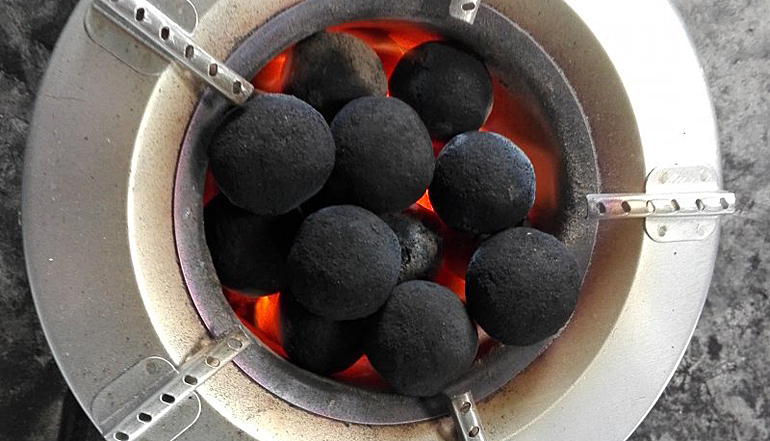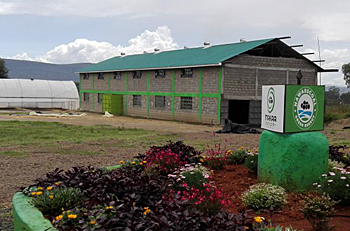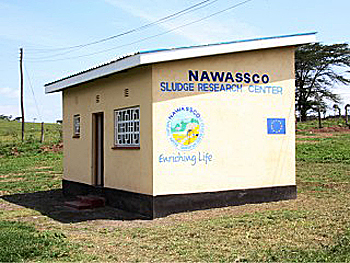How Nakuru, Kenya managed to create value out of shit
 MakaaDotcom – that round ball of shit –has taken over the market of the city of Nakuru, Kenya as a fuel for energy. The briquette is produced from human faeces and is now being used to power cookstoves in households and businesses, e.g., restaurants, institutions, and poultry farmers. Nakuru’s local water and sanitation company (Nawassco) started production and sales in June 2017 and is currently producing 10 tonnes per month.
MakaaDotcom – that round ball of shit –has taken over the market of the city of Nakuru, Kenya as a fuel for energy. The briquette is produced from human faeces and is now being used to power cookstoves in households and businesses, e.g., restaurants, institutions, and poultry farmers. Nakuru’s local water and sanitation company (Nawassco) started production and sales in June 2017 and is currently producing 10 tonnes per month.
This value chain thinking was initiated by the Nakuru County Sanitation Programme (NCSP), an EU co-funded project started in 2013 by the Nakuru Water and Sanitation Services Company Ltd (Nawassco), Vitens Evides International, Umande Trust, SNV and the Nakuru County Government.
 The current production plant of Nawassco where it produces 10 ton of MakaaDotcom briquette monthly.
The current production plant of Nawassco where it produces 10 ton of MakaaDotcom briquette monthly.
Five years
According to Reinilde Eppinga, WASH advisor for SNV it took five years to transform the collected faeces into a valuable product. Eppinga has been closely involved in the sanitation project and believes that the success is thanks to a broad-based multi-actor endeavour.
Eppinga recently reported on the project and wrote on its achievements: "The NCSP managed to strengthening city-wide hygiene awareness; promoting safe and sustainable toilet options; and exploring sludge collection and transport systems."
"Importantly, the programme contributed to strengthening public-private partnerships to spur the enactment of regulation behind the governance of human waste transport and re-use", she explained Wash advisor Eppinga.
 A latrine in Nakuru where SNV and Egerton University studied the options to make products from human waste.
A latrine in Nakuru where SNV and Egerton University studied the options to make products from human waste.
Principal business
The option of producing briquettes from human waste was selected as the most promising. It was found to offer a safer, affordable, and more sustainable energy solution for cooking, compared to the widely-used charcoal.
The current activities resulted in a volume increase of sludge reaching the sewerage treatment plant, significantly reducing the practice of dumping shit in people’s own backyards.
With a vision in mind, the social enterprise Nawasscoal managed to evolve the production of briquettes into its principal business.
Upscaling
According to Eppinga a household survey indicated that 80 percent of households surveyed indicated the willingness to purchase the product – a market share larger than the envisaged production capacity. This held promise for considerable profits if the business would be implemented at scale.
The production is envisioned to increase to 150 tonnes per month: the volume required to meet the energy needs of over 50,000 households.
The project started with a modest investment of 300,000 euro. The business is expected to breakeven during the third year. Final pay back of the initial investment will be completed by the sixth year, and an annual profit of 250,000 euro is expected to be yielded.
This news item is based on Eppinga's blog published on the website of SNV Wash.
(photos: SNV/ Reinilde Eppinga)
Read also on this website
● Oxfam and IHE Delft develop a Tiger Worm Toilet for refugee camps in Myanmar, 18 December 2018
● World Toilet Day: Sarphati sanitation award 2019 opens call for nominees, 19 November 2018
● SNV takes a stand against poor circumstances septic tank emptiers in Bangladesh, 14 September 2017
● Safi Sana installs new digester to expand its waste conversion capacity in Accra, Ghana, 7 February 2017
● Expertise: Water for all
● Country: Kenya
More information
SNV Wash
The Hague, the Netherlands
+31 70 3440 244
www.snv.org



